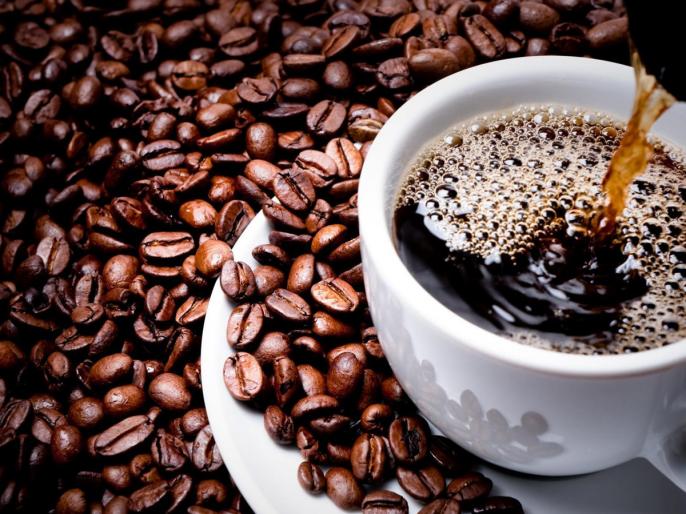
Tea is one of the most popular beverages the world over. The concoction is enjoyed in numerous different ways in different parts of the world. The caffeinated beverage also has many different types, depending on the climate that it's manufactured in, the level of processing that the leaves are made to undergo, the season that the leaves are harvested in etc. Nowadays, caffeine-free herbal teas or tisanes have also gained popularity, especially among those who have been addicted to caffeine and who need to cut it down. Herbal teas are typically concoctions prepared by boiling a number of spices, herbs or other parts of the plant, like flowers, with water.
Fruit-infused teas have also gained popularity. These beverages cannot be categorised as 'teas' technically as they don't contain tea leaves, but are instead prepared by boiling an assortment of dried or fresh fruits in water, along with spices. Fruit-infused teas may contain some water soluble vitamins and nutrients that may get seeped into the water that the fruits are being boiled in. Although such fruit-infused teas may actually have limited health benefits, they serve as great alternatives for caffeinated teas. They are delicious as they contain the delicate flavours of the fruits and you can drink these anytime of the day including late into the night, without worrying about staying awake.
How To Make Fruit-Infused Tea
We have the perfect recipe for a fruit-infused tea that is suited for hot summer days. The infusion is completely free of caffeine and contains the relaxing chamomile tea that is known to have a number of health benefits. Here are just some of them:
1. May help fight insomnia and help improve the quality of sleep.
2. May fight digestive issues like diarrhoea and stomach ulcers.
3. May boost heart health, due to the presence of flavones that have antioxidant properties.
4. May help soothe anxiety.
The recipe also contains the calming and soothing earthy flavour of ginger. This recipe uses a variety of Vitamin C-rich fruits like oranges, berries, along with chamomile tea, mint leaves and ginger. It's very easy to make the tea and all you have to do is wash all your ingredients thoroughly and then boil them in water and then pour the filtered water out into cups. You may add honey as per your taste.
Multiple studies have shown that drinking coffee may make arteries stiffer, but according to a latest study, coffee may not be as bad as previously thought. The 'British Cardiovascular Society Annual Conference' in Manchester said that previous studies stating that drinking coffee leads to stiffer arteries are inconsistent and limited in nature.
If arteries become stiff, it may hinder your blood flow. Obstructed blood flow could lead to stroke or attack. Dr Kenneth Fung, who led the data analysis for the research at Queen Mary University of London, said "Despite the huge popularity of coffee worldwide, different reports could put people off from enjoying it. Whilst we can't prove a causal link in this study, our research indicates coffee isn't as bad for the arteries as previous studies would suggest.
"Although our study included individuals who drink up to 25 cups a day, the average intake amongst the highest coffee consumption group was five cups a day. We would like to study these people more closely in our future work so that we can help to advise safe limits."
For the study, coffee consumption was categorised into three groups. Those who drink less than one cup a day, those who drink between one and three cups a day and those who drink more than three. People who consumed more than 25 cups of coffee a day were not made part of the study. According to the findings, no increased stiffening of arteries was associated with those who drank up to this high limit when compared with those who drank less than one cup a day.
While studying associations, the scientists also took account of factors like age, gender, ethnicity, smoking status, height, weight, alcohol intake, what they ate and high blood pressure.
Of the 8,412 participants who underwent MRI heart scans and infrared pulse wave tests, the research showed that moderate and heavy coffee drinkers were most likely to smoke, consume alcohol regularly and were male.
Professor Metin Avkiran, Associate Medical Director at the British Heart Foundation, said, "Understanding the impact that coffee has on our heart and circulatory system is something that researchers and the media have had brewing for some time."
"There are several conflicting studies saying different things about coffee, and it can be difficult to filter what we should believe and what we shouldn't. This research will hopefully put some of the media reports in perspective, as it rules out one of the potential detrimental effects of coffee on our arteries.

Summer nutrition may not be as easy to figure out, as one would imagine. Not only is it important to drink enough water, but it is also essential to make sure your solid foods contain enough water and nutrition to keep your energy levels optimal in the extreme weather. Carrying bottles of water especially while stepping out and eating enough fruits are two summer diet tips that perhaps all health experts will suggest, in order to avoid dehydration. But these may not be enough in order to stay healthy, especially as the heat wave has been sweeping large parts of the Indian subcontinent. Heat wave is characterised by temperatures of 42 degrees Celsius and above, as well as extremely hot and dry summer winds.
If you spend a good part of your day outdoors, braving the sweltering heat and loo, then there's a good chance you may experience a number of health issues including sluggishness, headaches, nausea and even poor digestion. These may be brought on by loss of fluids from your body due to excessive sweating. There are certain foods that may also be responsible for leaving your body dehydrated. Caffeine and caffeinated drinks are often blamed for dehydration and whether or not one can consume them during summers remains a common confusion among people.
Caffeine During Summers: Yay or Nay?
We contacted consulting nutritionist Dr. Rupali Datta to clear this common doubt about whether or not it is safe to consume caffeine during summers, and if so, then what are the safe consumption limits for caffeinated drinks. We asked her about three most commonly consumed caffeinated drinks- tea, coffee and energy drink:
1. Is it okay to consume caffeine during summers?
Coffee is said to be a diuretic drink, which means that it is feared to cause fluid loss, by making you urinate more often. However, a number of studies have dispelled the notion that coffee is incredibly dehydrating, if consumed in moderation, as part of a healthy lifestyle. Dr. Datta echoes these sentiments, saying that it is perfectly okay to consume coffee during summers.
2. What is the healthiest source of caffeine during summers- tea, coffee or sports drinks?
Dr. Datta says, "All but sports drinks can be consumed under proper guidance." Sports and energy drinks have been blamed for a number of health problems by multiple research studies. Although coffee has more caffeine than sports drinks, the latter is considered more harmful as it contains more sugar than your average sweetened cup of coffee.
3. What is the recommended daily intake of caffeine for summers?
According to Dr. Datta, "250 milligrams or roughly two and a half cups of caffeinated drinks are acceptable in a day. Anything that exceeds this may have side-effects." However, she warns that excessive caffeine may result in heart palpitations and headaches.
4. What are the healthy ways to consume caffeine during summers?
Dr. Datta suggests, "Pair your cup of coffee or tea with some cheese or nuts. Other snack options that you can consume with caffeinated drinks include popcorn, a slice of multigrain bread etc."
So now you know! When it comes to health and nutrition, it is always advisable to know the complete truth about particular foods and drinks, as well as their impacts on your body. Knowledge is power, after all. Happy Summers!
जगभरात दोन प्रकारचे लोक असतात. एक ज्यांना चहा खूप पसंत आहे आणि दुसरे ज्यांना कॉफी खूप पसंत आहे. आज जागतिक कॉफी डे आहे यामुळे आज आपण कॉफी आणि त्याच्याशी निगडीत 7 इंटरेस्टिंग गोष्टी जाणून घेणार आहोत. कॉफी ही जगात सर्वाधिक विकणारी गोष्ट आहे. तसेच कॉफी पिणाऱ्या लोकांची ताकद ही देखील चहा पिणाऱ्या व्यक्तींच्या तुलनेत सर्वाधिक आहे. कॉफी पिताना त्याच्या फायद्यांबरोबरच तोटा देखील जाणून घेणं महत्वाचं आहे.
जाणून घेऊया 7 रोमांचक गोष्टी
1. जर तुम्ही सकाळच्या वेळेत कॉफी घेत असाल तर तुमच्यासाठी हे सर्वात महत्वाचं आहे. तुम्हाला हे माहित असणं आवश्यक आहे की कोणत्या वेळी कॉफी घेणं सर्वाधिक महत्वाचं आहे. सर्वात महत्वाचं म्हणजे सकाळी 8 ते 9 या वेळेत स्ट्रेस हार्मोन कार्टीसोल वाढत असतो. यावेळी जर तुम्ही कॉफी प्यायलत तप स्ट्रेस लेवल कमी होण्याऐवजी ते वाढण्याची शक्यता असते.
2. जर कोणत्या ठराविक वेळेत कॉफी पिण्याची सवय लागली तर त्यावेळी स्वतःला फ्रेश ठेवण्याकरता कॉफीची अत्यंत गरज जाणवते. यामुळे तु्म्हाला सर्वात जास्त कॉफी पिण्याची सवय लागू शकते.
3. जर तुम्हाला सकाळी 10 ते 11.30 पर्यंत कॉफी पिणं आवडत असेल तर लक्षात घ्या तुम्हाला कॉफी पिण्याची सवय झाली आहे. महत्वाचं म्हणजे हीच कॉफी पिण्याची योग्य वेळ आहे जेव्हा कार्टीसोलचा स्तर कमी असतो. यावेळी कॉफी पिणं योग्य असून सुरक्षित हे.
4. जर तुम्ही 12 ते 1 यावेळेत कॉफी घेत असाल तर ती देखील चुकीची वेळ आहे. यावेळेत कॉफी प्यायल्यावर तुम्हाला नुकसान होऊ शकते. महत्वाचं म्हणजे 1 ते 5 ही वेळ पुन्हा एकदा कॉफीसाठी योग्य आहे.
5. अनेकांना जेवणासोबत, जेवणानंतर किंवा जेवणा अगोदर कॉफी पिण्याची सवय असते. तर ही सवय सर्वात घातक आहे. यावेळी शरीरात आर्यनचे प्रमाण सर्वाधिक वाढते.
6. जेवण आणि कॉफी यांच्यात एक तासाचा अंतर असणं महत्वाचं असतं. संध्याकाळी कॉफी प्यायल्यामुळे तुम्ही झोप खराब होऊ शकते.
7. सामान्यपणे कॉफी करता 65 रुपये मोजणे महाग वाटते पण जगात एक अशी जागा आहे जिथे कॉफी तब्बल 65,000 रुपयांना मिळते. 22 वर्षांपासून या ठिकाणी लोकप्रिय कॉफी मिळते. ते ठिकाण आहे जपान. जपानच्या ओसाका शहरात मंच हाऊस येथील कॉफी अतिशय लोकप्रिय आहे.

पर्यायी उपायांमध्ये अनेकदा त्या गोष्टींवर लक्ष केंद्रित करण्यात येतं, ज्या निसर्गापासून मिळण्यास मदत होते आणि ज्यांचे अजिबात साइड इफेक्ट्स नसतात. यांपैकीच एक म्हणजे, कॅफेन थेरपी (Caffeine therapy). तुम्हाला ऐकून थोडं नवल वाटलं असेल ना?, पण अनेक लोक दररोज कॅफेन थेरपीचा आधार घेत असल्याचे दिसून येत आहे. आता तुम्ही म्हणाल की, अनेकदा कॅफेनचं सेवन कमी करण्याचा सल्ला देण्यात येतो. एवढंच नाहीतर कॉफीमध्ये असणाऱ्या कॅफेनमुळे कॉफी न पिण्याचा किंवा कमी पिण्याचा सल्ला दिला जातो. दे हेल्थ साइटने दिलेल्या वृत्तानुसार, कॅफेन थेरपी शरीरासाठी अत्यंत फायदेशीर ठरत असून जाणून घेऊया काय आहे कॅफेन थेरपी आणि शरीरासाठी कशी ठरते फायदेशीर याबाबत...
कॅफेन थेरपी (Caffeine Therapy)
कॅफेन जगभरामध्ये सर्वात जास्त वापरण्यात येणारं फूड प्रोडक्ट आहे. अनेक पदार्थांमध्ये कॅफेनचा वापर करण्यात येतो. निसर्गातील साठपेक्षा एधिक वनस्पतींपासून कॅफेन प्राप्त केलं जाऊ शकतं. शरीराच्या वेदना दूर करण्यासाठीही कॅफेन मदत करतं. त्याचबरोबर मानसिक शांततेसाठी आणि तणावावर उपचार म्हणून कॅफेन काही प्रमाणात मदत करतं. कॅफेनचे हेच गुणधर्म लक्षात घेऊन कॅफेन थेरपीचा वापर करण्यात येतो.
अशाप्रकारे मदत करते कॅफेन थेरपी
कॅफेन थेरपी एक नैसर्गिक पद्धतीने वेदना दूर करणारा उपचार आहे. हे शरीराच्या पचनक्रियेलाही प्रभावित करू शकतो. कॅफेन थेरपीमध्ये एका निश्चित प्रमाणात कॅफेन रूग्णाला देण्यात येतं. ज्यामुळे हे त्याच्या मेंदूशी निगडीत असणाऱ्या तंत्रिकांना उत्तेजित करण्यासाठी फायदेशीर ठरतं. ज्यामुळे रूग्णामध्ये पहिल्यापेक्षा जास्त ऊर्जा दिसून येते.
एका ठराविक प्रमाणात करा उपयोग
कॅफेन थेरपीचे अनेक फायदे असूनही अनेक तज्ज्ञ कॅफेनचं एका ठराविक प्रमाणात सेवन करण्याचा सल्ला देतात. कॅफेनच्या अतिसेवनाने शरीराला अनेक समस्यांचा सामनाही करावा लागू शकतो. कॅफेनच्या अतिसेवनाने अॅसिडिटीची समस्या वाढू शकते. यामुळे हृदयाचे ठोके वाढणं, हायपरटेन्शनचाही धोका वाढतो. जेवल्यानंतर लगेचंच कॅफेनचं सेवन पोषक तत्व कमी करण्याचं कारण ठरू शकतं. यामुळे शरीरातील कॅल्शिअमवरही परिणाम दिसून येतो.
टिप : वरील सर्व गोष्टी आम्ही केवळ माहिती म्हणून वाचकांपर्यंत पोहोचवत आहोत. यातून आम्ही कोणताही दावा करत नाही. प्रत्येकाची शारीरिक क्षमता वेगवेगळी असते. त्यामुळे कोणताही उपाय करण्याआधी तज्ज्ञांचा सल्ला घेणं फायदेशीर ठरतं.












